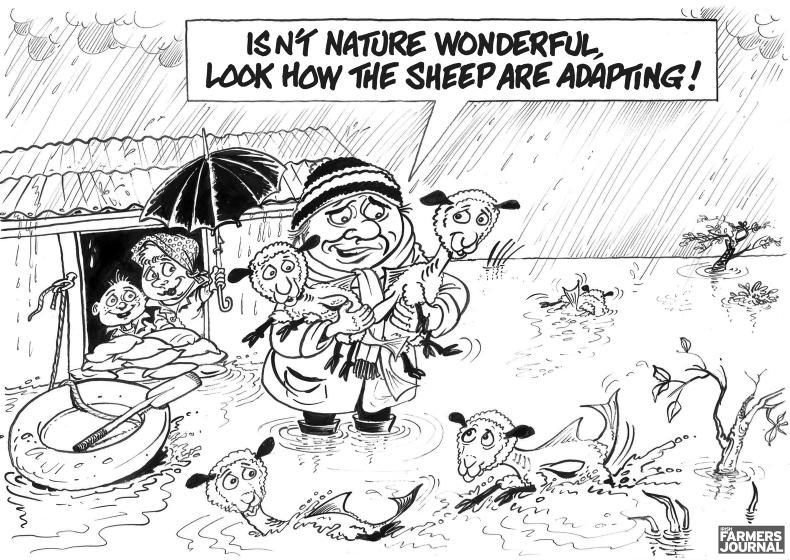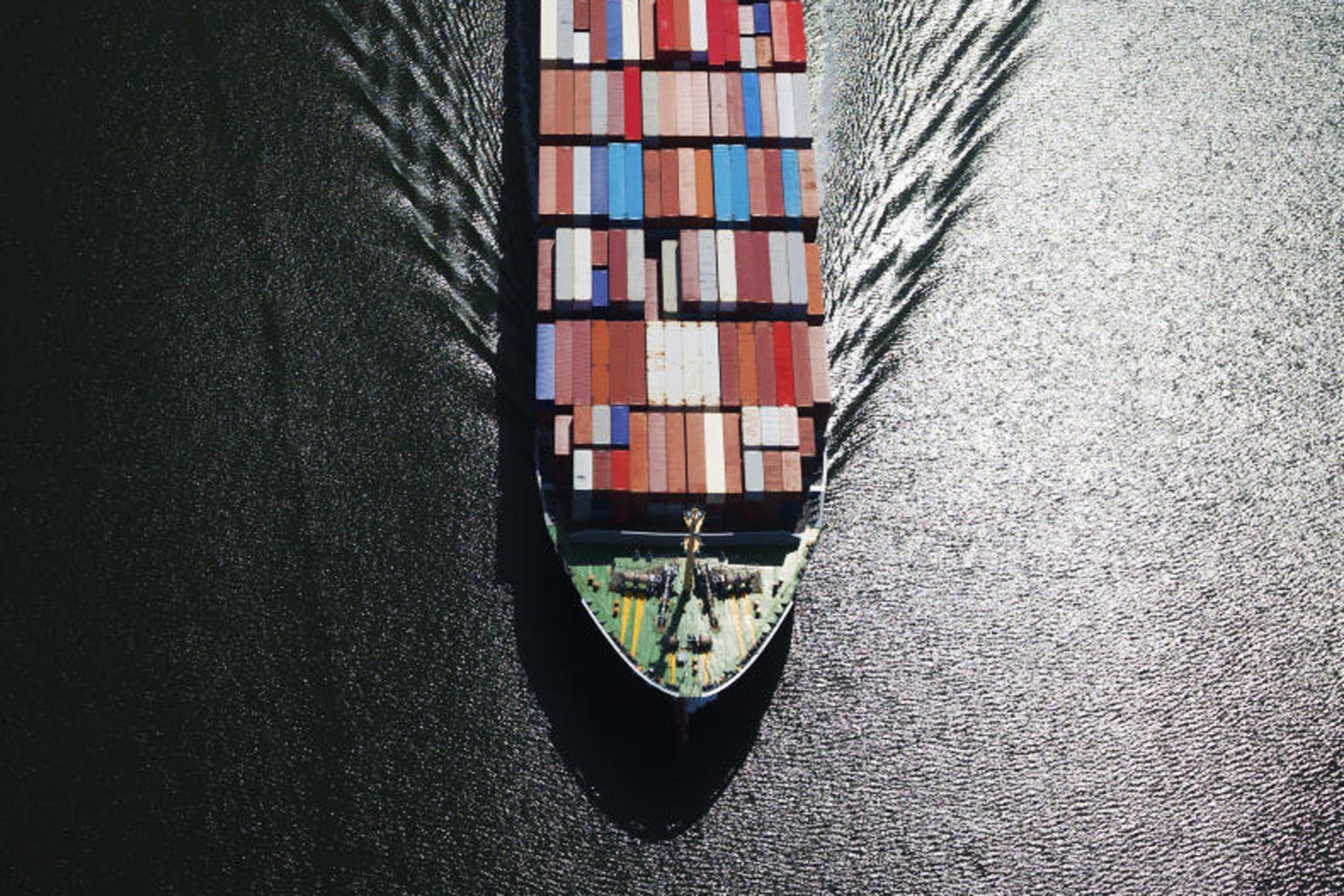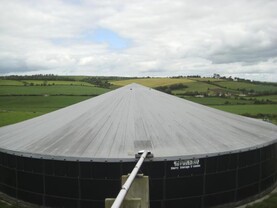Farmers have had to deal with great uncertainty due to Brexit, CAP, the EU Green Deal, EU-US trade disputes and indeed other trade deals.
While these are immense challenges, we have a degree of understanding as to the impact they will have. The threat from coronavirus, however, is totally different in that we can neither assess its scale nor its potential impact. We simply don’t know how it will develop and affect global society.
With the virus presenting across Asia, Europe and the Middle East, attention is turning to the potential impact on the global economy. The uncertainty has seen many of the major stock market indices record sharp falls over recent days.
As Phelim O’Neill and Lorcan Allen report, a Rabobank report suggests the economic impact of the virus spreading rapidly across developed countries would be akin to the financial crisis of 2008-2009. Even in a best-case scenario where the spread of the disease is contained largely within China, a noticeable negative impact on the global economy is forecast – largely reflecting the fact that in recent decades, the sensitivity of the world economy to China’s growth rate has almost trebled.
At this stage no one knows what the full impact will be. What we do know is that the disruption already caused to normal trade flows in China has taken the gloss off a market that just a few weeks ago offered so much potential for our agri-food exports.
The challenges are twofold: impact on consumer sentiment and disruption to global supply chains blocking routes to market. The shutdown in China has created huge backlogs at ports with container ships docked and unable to unload.
In the US, the price of manufacturing beef has fallen as both Australia and New Zealand reroute beef from China to the US
Almost half of the planned sailings from Europe to China for February have been cancelled with a similar trend in North America. The result is an estimated loss of 300,000 cargo containers a week. With China now the second most important export market for Irish pigmeat, the ongoing disruption to the supply chain risks restricting access to what has been a booming market. International grain markets have also fallen because of uncertainty.
For the beef sector, the threat comes more in the form of increased competition in the EU market. In his sectoral impact analysis, Phelim O’Neill highlights the decline in the volume of South American beef entering the Chinese market in recent weeks. If this continues, we will see higher volumes of cheap South American product directed towards the EU.
In the US, the price of manufacturing beef has fallen in recent weeks as both Australia and New Zealand reroute beef from China to the US.
Just a few weeks ago, the outlook for dairy markets was positive thanks to strong global demand and tighter supplies in key dairy-producing regions. Outside of China, little has changed. But for Irish dairy, China is the largest export market outside of the UK and one that delivers both value and volume. On the back of the virus, Rabobank forecast a 1% decline in dairy demand, translating into a potential 11% decline in imports – a scenario that would destabilise a finely balanced global dairy market.
Speaking to the Irish Farmers Journal this week, Ornua CEO John Jordan reports that it is already seeing a fall-off in demand. Ultimately, in terms of the impact, timing will be everything. Should the spread of the virus stabilise in the coming weeks, more normalised distribution and trading patterns should have returned prior to Ireland reaching peak milk production. A prolongation of the current scenario throughout the summer will see significant market pressure as the need to move volumes intensifies.
Meanwhile, Phelim O’Neill reports on the continued threat of Brexit and CAP cuts to farmer income. As talks between Fianna Fáil and Fine Gael on the formation of the next government continue, we expect Leo Varadkar to ensure that his commitment to underwrite any cut to the CAP budget remains top of the agenda when agreeing a programme for government. At the Michael Dillon memorial lecture last Friday, An Tánaiste Simon Conveney warned that in relation to Brexit: “Things could get worse before they get better.” The fallout from the coronavirus merely reinforces the value of a nearby, stable export market such as the UK.
Given the grey clouds on the horizon, there is clearly a need for prudent planning at farm, processing and policy level. One would expect that detailed contingency planning is under way at national and EU level in relation to what market stabilisation tools will be deployed if the outcome of coronavirus or Brexit leads to major market disturbance.

\ Jim Cogan
Agribusiness: big test lying in wait for Glanbia team
As Lorcan Allen details, Glanbia plc reported a 16% decline in earnings in 2019. The difficult trading conditions had been well flagged and reflect a 38% decline in share price over the year.
Speaking with the Irish Farmers Journal on Wednesday, CEO Siobhan Talbot accepted that the business had gone through a difficult period with the once flagship Performance Nutrition business creating a drag on what was a strong performance for the more traditional nutritional solutions business.
Once returning margins of upwards of 15%, the headwinds facing the Performance Nutrition business were realised in 2019. Some will argue Glanbia either did not adequately identify or did not prepare for these in advance.

Siobhan Talbot, Glanbia group managing director.
Regardless of where the blame lies, there is no doubt that we are once again seeing the challenges and complexities associated with trying to build a global consumer-facing brand.
When on trend, the margins can be high but ultimately it is the attractiveness of these margins that attracts increased competition into the market and exposes it to disruptive competitors.
Nevertheless, Glanbia is confident that a comprehensive review of its Performance Nutrition business will see the plc turn around growth in adjusted earnings to an average of 5-10% over the next three years – albeit that performance in 2020 is forecast to be broadly in line with 2019.
With a strong balance sheet and relatively low levels of debt, the business is well positioned to take on the challenges. However, the success of the board and executive team to develop and deliver a growth strategy will no doubt be watched closely.
Calf exports: availability of boats key to livestock trade
The availability of livestock boats to take animals to their destination in a safe and healthy manner is fundamental to having a successful cattle export trade.
The fact that two livestock boats were decommissioned must be acknowledged, but it is key that they are replaced or improved to offer competitive alternatives to those exporting animals out of Ireland.
The recent trade mission to Africa highlighted the potential and demand for feeding and breeding stock, but the fact is the years of work that went into achieving herd health status approvals are wasted unless there are boats available to get stock off the island.
The calf export boats are struggling in choppy seas and the vulnerability of this market is clear with very significant downward impact on calf prices when they are not sailing. However, hopefully it is just a delay and normal service can resume.
The Department of Agriculture has come in for some criticism on checking calf health on calves destined for export. There is no way we can condone poor welfare by any individual. There are clear requirements in place and if these are undermined, the whole industry will suffer.
Standards must be maintained and there is no room for misadventure on this issue.
Gender equality: striking a balance for business success
Earlier this week, the Ceres Network held an event focused on striking a gender balance in Irish agri-food. For many business leaders, it is an uncomfortable subject. In his address, Ornua CEO John Jordan crystallised the importance of breaking down this barrier, highlighting that diversity is not a gender issue but a business issue that requires change to implement. This is playing out more at farm level where often the most successful, progressive and stable farming businesses are where the entire family is engaged and has an input. Striking a balance for successful business is something that needs to be kept top of the agenda across the sector.
Farmers have had to deal with great uncertainty due to Brexit, CAP, the EU Green Deal, EU-US trade disputes and indeed other trade deals.
While these are immense challenges, we have a degree of understanding as to the impact they will have. The threat from coronavirus, however, is totally different in that we can neither assess its scale nor its potential impact. We simply don’t know how it will develop and affect global society.
With the virus presenting across Asia, Europe and the Middle East, attention is turning to the potential impact on the global economy. The uncertainty has seen many of the major stock market indices record sharp falls over recent days.
As Phelim O’Neill and Lorcan Allen report, a Rabobank report suggests the economic impact of the virus spreading rapidly across developed countries would be akin to the financial crisis of 2008-2009. Even in a best-case scenario where the spread of the disease is contained largely within China, a noticeable negative impact on the global economy is forecast – largely reflecting the fact that in recent decades, the sensitivity of the world economy to China’s growth rate has almost trebled.
At this stage no one knows what the full impact will be. What we do know is that the disruption already caused to normal trade flows in China has taken the gloss off a market that just a few weeks ago offered so much potential for our agri-food exports.
The challenges are twofold: impact on consumer sentiment and disruption to global supply chains blocking routes to market. The shutdown in China has created huge backlogs at ports with container ships docked and unable to unload.
In the US, the price of manufacturing beef has fallen as both Australia and New Zealand reroute beef from China to the US
Almost half of the planned sailings from Europe to China for February have been cancelled with a similar trend in North America. The result is an estimated loss of 300,000 cargo containers a week. With China now the second most important export market for Irish pigmeat, the ongoing disruption to the supply chain risks restricting access to what has been a booming market. International grain markets have also fallen because of uncertainty.
For the beef sector, the threat comes more in the form of increased competition in the EU market. In his sectoral impact analysis, Phelim O’Neill highlights the decline in the volume of South American beef entering the Chinese market in recent weeks. If this continues, we will see higher volumes of cheap South American product directed towards the EU.
In the US, the price of manufacturing beef has fallen in recent weeks as both Australia and New Zealand reroute beef from China to the US.
Just a few weeks ago, the outlook for dairy markets was positive thanks to strong global demand and tighter supplies in key dairy-producing regions. Outside of China, little has changed. But for Irish dairy, China is the largest export market outside of the UK and one that delivers both value and volume. On the back of the virus, Rabobank forecast a 1% decline in dairy demand, translating into a potential 11% decline in imports – a scenario that would destabilise a finely balanced global dairy market.
Speaking to the Irish Farmers Journal this week, Ornua CEO John Jordan reports that it is already seeing a fall-off in demand. Ultimately, in terms of the impact, timing will be everything. Should the spread of the virus stabilise in the coming weeks, more normalised distribution and trading patterns should have returned prior to Ireland reaching peak milk production. A prolongation of the current scenario throughout the summer will see significant market pressure as the need to move volumes intensifies.
Meanwhile, Phelim O’Neill reports on the continued threat of Brexit and CAP cuts to farmer income. As talks between Fianna Fáil and Fine Gael on the formation of the next government continue, we expect Leo Varadkar to ensure that his commitment to underwrite any cut to the CAP budget remains top of the agenda when agreeing a programme for government. At the Michael Dillon memorial lecture last Friday, An Tánaiste Simon Conveney warned that in relation to Brexit: “Things could get worse before they get better.” The fallout from the coronavirus merely reinforces the value of a nearby, stable export market such as the UK.
Given the grey clouds on the horizon, there is clearly a need for prudent planning at farm, processing and policy level. One would expect that detailed contingency planning is under way at national and EU level in relation to what market stabilisation tools will be deployed if the outcome of coronavirus or Brexit leads to major market disturbance.

\ Jim Cogan
Agribusiness: big test lying in wait for Glanbia team
As Lorcan Allen details, Glanbia plc reported a 16% decline in earnings in 2019. The difficult trading conditions had been well flagged and reflect a 38% decline in share price over the year.
Speaking with the Irish Farmers Journal on Wednesday, CEO Siobhan Talbot accepted that the business had gone through a difficult period with the once flagship Performance Nutrition business creating a drag on what was a strong performance for the more traditional nutritional solutions business.
Once returning margins of upwards of 15%, the headwinds facing the Performance Nutrition business were realised in 2019. Some will argue Glanbia either did not adequately identify or did not prepare for these in advance.

Siobhan Talbot, Glanbia group managing director.
Regardless of where the blame lies, there is no doubt that we are once again seeing the challenges and complexities associated with trying to build a global consumer-facing brand.
When on trend, the margins can be high but ultimately it is the attractiveness of these margins that attracts increased competition into the market and exposes it to disruptive competitors.
Nevertheless, Glanbia is confident that a comprehensive review of its Performance Nutrition business will see the plc turn around growth in adjusted earnings to an average of 5-10% over the next three years – albeit that performance in 2020 is forecast to be broadly in line with 2019.
With a strong balance sheet and relatively low levels of debt, the business is well positioned to take on the challenges. However, the success of the board and executive team to develop and deliver a growth strategy will no doubt be watched closely.
Calf exports: availability of boats key to livestock trade
The availability of livestock boats to take animals to their destination in a safe and healthy manner is fundamental to having a successful cattle export trade.
The fact that two livestock boats were decommissioned must be acknowledged, but it is key that they are replaced or improved to offer competitive alternatives to those exporting animals out of Ireland.
The recent trade mission to Africa highlighted the potential and demand for feeding and breeding stock, but the fact is the years of work that went into achieving herd health status approvals are wasted unless there are boats available to get stock off the island.
The calf export boats are struggling in choppy seas and the vulnerability of this market is clear with very significant downward impact on calf prices when they are not sailing. However, hopefully it is just a delay and normal service can resume.
The Department of Agriculture has come in for some criticism on checking calf health on calves destined for export. There is no way we can condone poor welfare by any individual. There are clear requirements in place and if these are undermined, the whole industry will suffer.
Standards must be maintained and there is no room for misadventure on this issue.
Gender equality: striking a balance for business success
Earlier this week, the Ceres Network held an event focused on striking a gender balance in Irish agri-food. For many business leaders, it is an uncomfortable subject. In his address, Ornua CEO John Jordan crystallised the importance of breaking down this barrier, highlighting that diversity is not a gender issue but a business issue that requires change to implement. This is playing out more at farm level where often the most successful, progressive and stable farming businesses are where the entire family is engaged and has an input. Striking a balance for successful business is something that needs to be kept top of the agenda across the sector.








 This is a subscriber-only article
This is a subscriber-only article









SHARING OPTIONS: